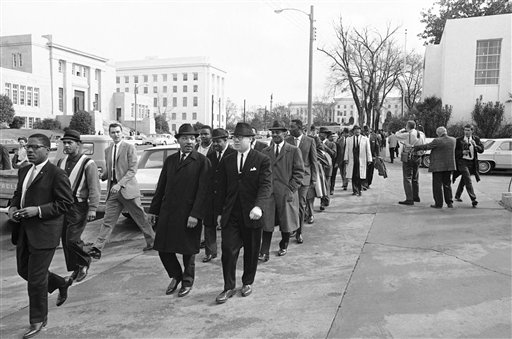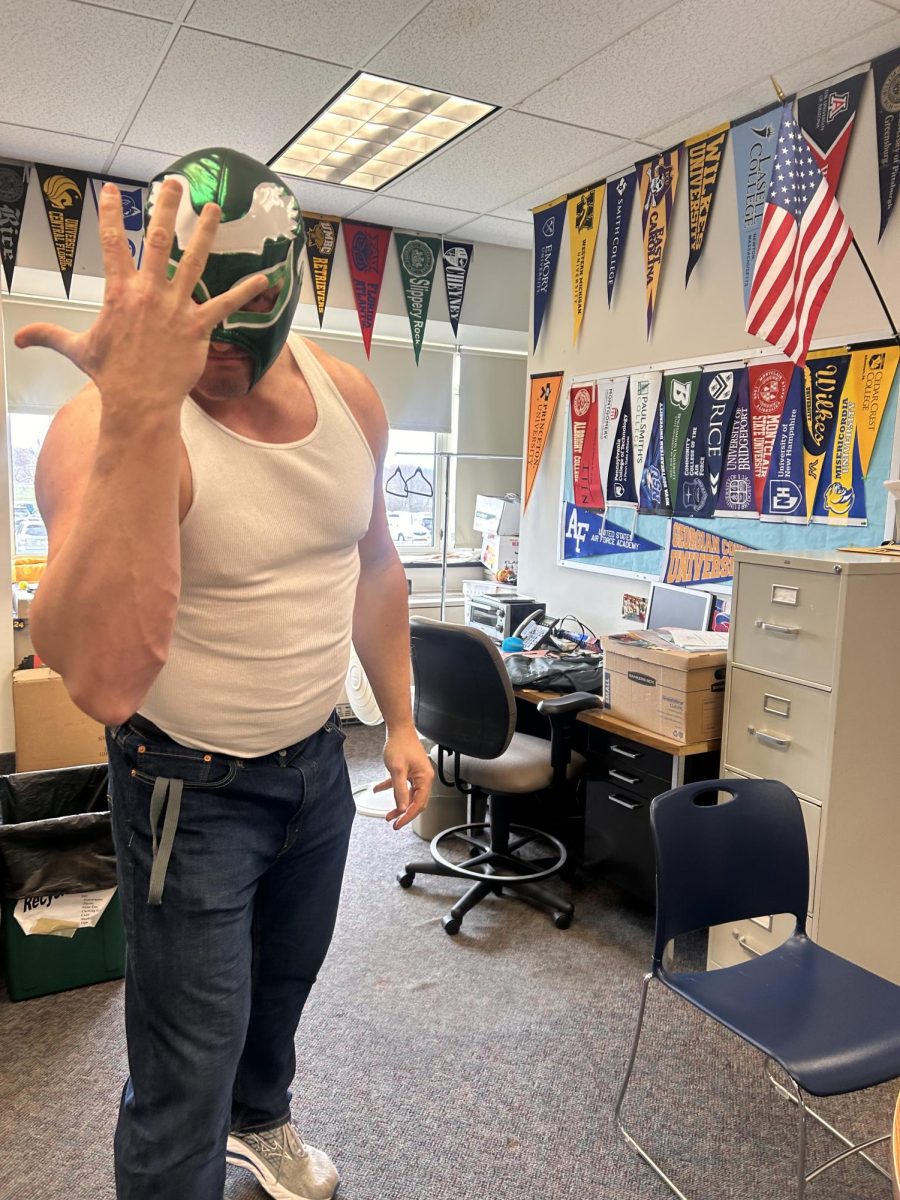“Selma” puts civil rights movement into perspective in an intense, telling biopic

Dr. Martin Luther King, left, heads a column of about 200 African Americans in a four-block march to the courthouse spearheading a voter registration drive in Montgomery, Alabama on Feb. 9, 1965. State capitol building in right background. (AP Photo/Horace Cort)
January 21, 2015
One word comes to mind when describing Academy Award and Golden Globe nominated Selma: intense.
From the very beginning, scene to scene, the audience can feel tensions mounting between characters during the Civil Rights movement in the 1960s. There is not a single moment in the film during which the tense tone fades away.
The movie begins with segregation laws being abolished throughout the United States, but black men and women still have a hard time registering to vote. Dr. Martin Luther King Jr. (David Oyelowo) and the Southern Christian Leadership Conference (SCLC) travel to Selma, Alabama, rallying people together to fight this discrimination.
There is clear unity among the black citizens and various supporters but also a palpable disconnect between them and the white opposition. People are subject to earth-shaking violence, tear gas thrown in their eyes, and brutal beatings in the name of their cause. The harsh reality of the Civil Rights Movement that the audience witnesses when seeing this film is unreal.
It’s impossible to watch a scene without jumping out of your seat a time or two. The film offered a jaw dropping view of the injustice of this critical time period in American history.
This era was a pivotal time in America’s history, and it was brilliantly portrayed with power and dignity onscreen. Selma acted as more than a movie, for it presented the opportunity for reflection and learning.
Martin Luther King Jr. is an activist in the movie, but he is also a husband and a father. There is a wholesomeness with which King is portrayed that many people do not know much about.
The audience is even given a unique opportunity to learn about crucial people of the time, including King, for the end of the movie was dedicated to sharing additional information about each one. It was such a respectful gesture to the people of this historical movement, and it made the movie even better than it already was.
In my opinion, everyone should put Selma on their must-see list so that they too can experience a piece of history.









